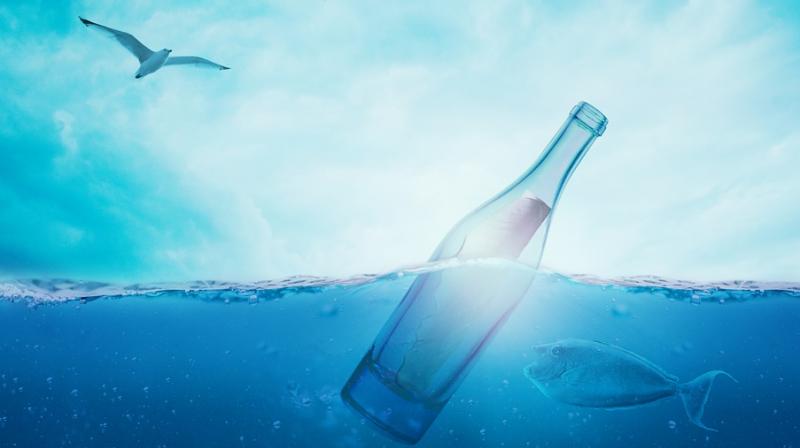A one-woman mission to tackle plastic pollution
Cal Major paddleboards from Land's End to John O'Groats due to the growing amount of plastic waste.

On what appears to be a giant ironing board, Cal Major glides past the pretty stretch of the Shropshire Union Canal. This platform mounts, the 29- year- old- vet’s mission to highlight the issue of plastic pollution.
Enraged by the plastic waste washing up on her favourite surfing beaches, Cal Major decides to take action as she aims to become the first person to paddleboard a 1000 miles, picking up as much plastic as possible. Her actions protest about the excessive plastic waste in seas, through this challenge that requires extreme physical strength that will take as long as four months. It will take her inland from the Bristol Channel along a succession of rivers and canals to Lancashire. She will gradually make her way around the Scottish coast. Paddling up to ten hours a day, she looks surprisingly perky despite the seasickness and strong winds. The physical effort in picking plastic with her litter-picker and placing it in a large blue bucket. .‘There are parts of the canals where you can hardly put your paddle in the water without hitting a piece of plastic,’ she says. During her approach to Brewood, she stated that she was disheartened upon seeing a duck with her ducklings, having to navigate through countless discarded plastic bottles and debris. The contrast between the “innocent ducklings who were in their natural habitat” and the “plastic which has right to be polluting their environment”, struck Cal Major deeply causing the image to be imprinted’ in her mind. Cal Major also encountered indestructible polystyrene trays still bearing remnants of takeaway food, plastic shopping bags, crisp packets and rubbish from factories, around the stretches of canals around Gloucester and Wolverhampton.
.‘A lot of the plastic in the oceans has found its way there from canals and rivers. I want to help show people that just because they don’t live by the sea doesn’t mean that the plastic they are using doesn’t have an impact,’ says Cal.‘That’s why the Daily Mail’s campaign against the over-use of plastic is so brilliant.’
Her own campaigning is motivated by her job as a vet, as she sees animals endangered by plastic pollution. Her awareness about worldly issues and how precious the countryside is, has motivated her to take part in such campaigns and formulate one herself. During her gap year, diving off Australia’s Great Barrier Reef, made her fall in love with the underwater world. “I had this great feeling of peace when I was there and I knew my heart would always be in ocean conservation.’
‘The more we love it, the more we will want to protect it.’
The extent to which the environment requires protection in this age of destruction, became apparent to Cal as she saw the sea from her own unique edge on the paddleboard. ‘I could get to sea coves which are inaccessible by land and found them full of plastic bottles, old fishing equipment and so much other rubbish. It was so upsetting to see’.‘Plastic pollution is a huge problem for our oceans, with eight million pieces of plastic entering the seas every day. It is estimated that by 2050, there will be more plastic in the ocean, by weight, than fish.’
Her current trip allowed her to waken up and come to terms with her inner desire to stop plastic pollution.
‘The oceans are so precious. They produce well over half the oxygen we breathe on Earth, and form intricate, important and fragile ecosystems. Plastic pollution is destroying this by killing marine life, destroying habitats and leaching harmful chemicals and carcinogens into the water. ‘This not only limits the oceans’ ability to sustain our life on Earth, the toxins feed back into our lives, too.’This extreme physical challenge has inspired Cal to take part in various beach clean-ups along the way, including one in Cumbria on June 8, World Oceans Day.She’s using her Facebook page to promote the clean up drive locally.
Her hopes are high that Mail readers will be inspired by her journey and thus, might show support by switching to using refillable water bottles like the eco-friendly Klean Kanteen she is carrying throughout her tour.‘There’s an app called Refill which you can download onto your phone. Lots of shops, cafes and restaurants have signed up and it tells you where you can refill your water bottle for free,’ she says. Carrying this hope, she paddles off with her blue bucket ready to be filled with excessive floating plastic.

